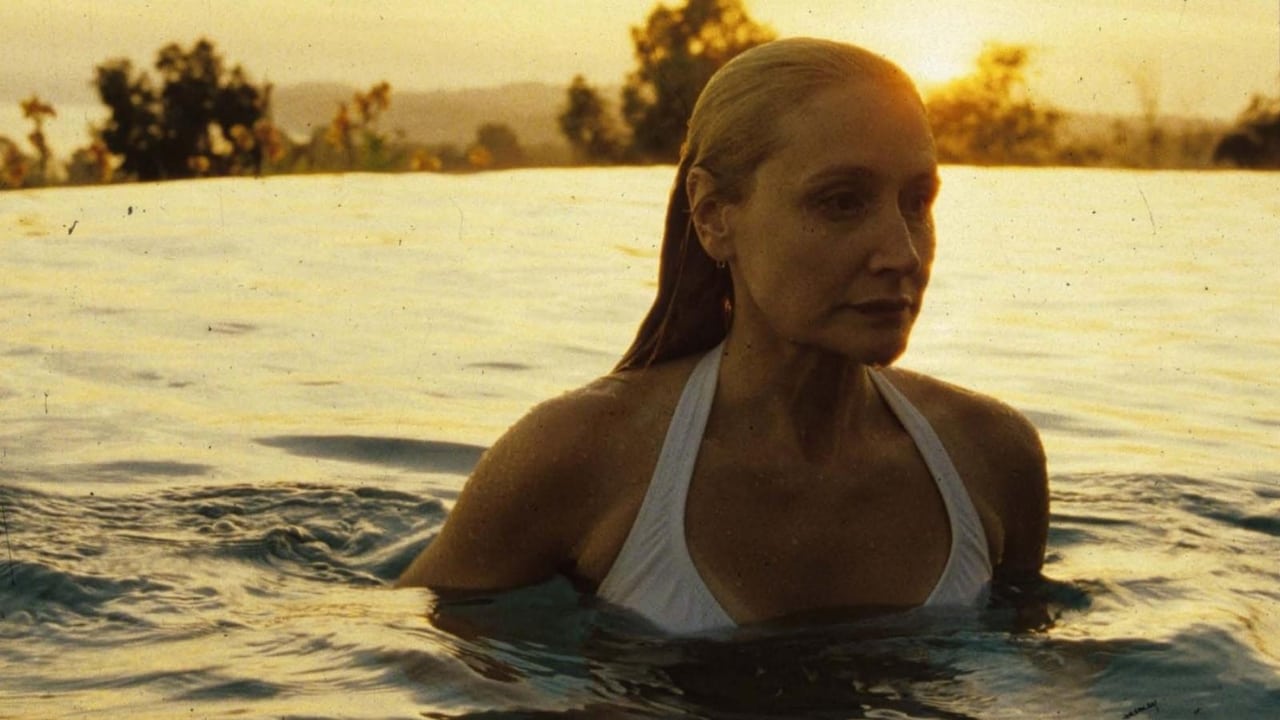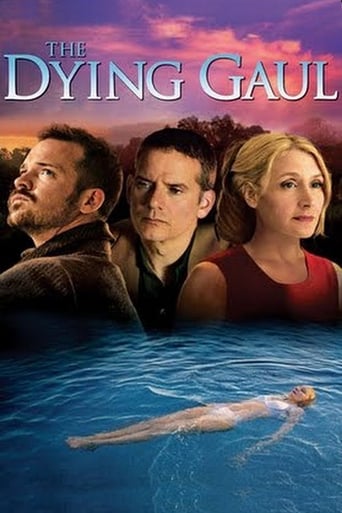VividSimon
Simply Perfect
SpuffyWeb
Sadly Over-hyped
Baseshment
I like movies that are aware of what they are selling... without [any] greater aspirations than to make people laugh and that's it.
Guillelmina
The film's masterful storytelling did its job. The message was clear. No need to overdo.
Armand
a game. more than a play. a film about small essential parts of life. its sin - ambition to say everything. the virtue, the real virtue - the cast. and sure, the script who becomes, after a precise panther, in first part, a huge elephant in the second. result - a good film for a lot of questions to yourself. but, in same time, an imprecise project. the acting is really great and the idea is not bad but my impression is to watch a boat facing strong currents.sure, it is interesting but in the last part almost confuse. the characters becomes silhouettes and a significant piece from its good basis is compromised. desire to born powerful emotions is a kind of obsession. so, the virtue remains the cast. that is all.
robertconnor
A charming but duplicitous film producer offers a gay writer a million dollars for a highly autobiographical script, providing he changes the gender of one of the characters. Struggling with the implication of this compromise, and still grieving for his recently deceased partner, the writer embarks on a friendship with the film producer and his wife. However, when the producer and the writer become sexually involved, a twisted psychological game begins.Based on Lucas's own play, The Dying Gaul is a deeply disturbing examination of the cause and effect of betrayal and desire, clouding the definitions of predator and victim - each character is guilty of manipulation, of deceit, even cruelty, and Lucas cleverly plays with the viewer's sympathies. That this creates a hugely compelling and extremely unsettling story is in part down to the performances of his three leads - Scott deftly coats Jeffrey's steely, uncompromising centre with snake-like charm and seductive banter, whilst Sarsgaard brilliantly captures the fragile determination and bewildered desperation of someone living with grief. Perhaps the most challenging character in the doomed triangle is Clarkson's Elaine, and a lesser actor would have missed all the subtle nuances and shades that help us see why Elaine follows her chosen path. We SHOULD feel sorry for the betrayed wife, but that would be too easy here. In Clarkson's hands, Elaine's actions and motivations are both ghastly and deeply moving. Why neither Clarkson nor Sarsgaard were acknowledged or recognised for their work here is a mystery.This is not a film for those who need to be bludgeoned with simple explanations of the why and wherefore, but those who enjoy challenging, thought-provoking and slightly obtuse explorations of the human condition will be greatly rewarded here.
pekinman
Watching 'The Dying Gaul' reminded me of watching 'The New Age' (Michael Tolkin, 1994). Both share the same facility for 'false grip' that keeps the viewer attending to the action while at the same time mentally numbing one into a false sense that there is any meaning to the whole thing. Perhaps that is the key, referring to the root of the poisonous plant found in the chic ultra-fab Malibu seaside manse's garden which, in the long run (spoilers begin here) acts as a deus ex machina at the end the movie. When the end does arrive I thought, of course, it had to be, what else could possibly have happened to bring this lolloping turkey to a conclusion. The script is a mish-mash of Buddha/Werner Erhard philosophical self-help and becomes a bit eye-rolling at times.Having said all that, I enjoyed many aspects of 'The Dying Gaul', not least of which were the performances of Patricia Clarkson and Peter Sarsgaard. But, like Judy Davis and Peter Weller in 'The New Age', all their great gifts of reaction to the words cannot mitigate the nebulous quality of the entire project. What IS the point? Is it another Gay Rage film, taking dark-humored revenge on the closeted bi-sexual married couples that abound across the landscape, or is Robert Sandrich (the screenwriter) just another serial killer....? Who knows. It is this mysteriousness that several of my friends were intrigued by and spent many hours discussing and reaching no conclusions. One of my film buff chums went way out on a wine-driven limb about how it was about the Reality of Cyberspace and all kinds of flapdoodle about melding karmas in chat rooms or some such stuff that is posited by the Sarsgaard character early in the film. Then the conversation veered off into other theories as to what this movie was about. When THAT happens in a conversation about a film I become immediately suspicious of its basic integrity. In other words, it is pretty much a pile of cow pats. Only a really great director can pull off such cinematic enigmas; I'm thinking of Peter Weir's masterpiece 'Picnic of Hanging Rock'.There is thinking and there is Thinking. 'The Dying Gaul' calls up the lesser of the two, amounting in the end to cinematic wool-gathering, rather like this comment is becoming, so I won't continue much longer.Basically I think this movie is a woman's revenge movie that backfires dreadfully. But as all the main characters are fairly reprehensible it had no emotional impact at all, it sort of went "phut" at the end when I think I was supposed to be devasted or something. Or perhaps this was part of the black humor bit that I didn't get. But I don't see much funniness in the deaths of children. If 'The Dying Gaul' is someone's idea of 'Black Humor' then I have definitely lived too long. This is a bitter, cruel, nasty movie that provokes puzzlement but little follow-up interest, at least for me. But worth viewing for Clarkson and Sargaard's performances and Steve Reich's interesting score.
druben2
If you like the glitzy Hollywood never-never land of the rich and beautiful and think that a few Buddhist sayings sprinkled in make it profound then this movie is for you. There is nothing about this story that is compelling to me. Is seems to be more about showing off a multi- million dollar piece of real-estate that anything else. There is no exploration of the family life or marriage of the couple and the "love affair" between the two men is completely unbelievable and stupid. The protagonist is supposed to be so broken up about the loss of his boyfriend that he quickly falls into bed with the married man, feeling no guilt that he is hurting the wife, who he actually likes better than the husband. We are supposed to feel his grief and think that the internet exchanges of silly Buddhist sayings based on deceptions is somehow deep. Its an insult to Buddhism, implying that new age aphorisms can be picked up by the Hollywood to try to get across some kind of message in a very superficial story. The sex isn't even erotic or convincing. So, why was this movie made? Why wasn't this one nipped in the bud? Sometime I can't believe the trash that Hollywood puts out!

